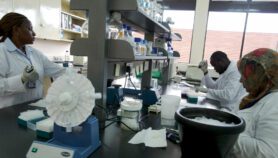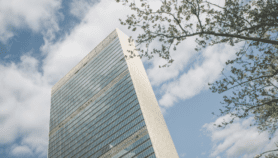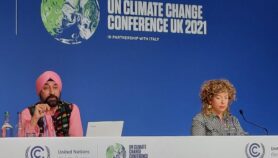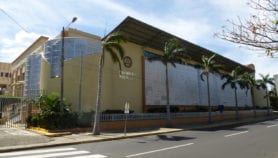Send to a friend
The details you provide on this page will not be used to send unsolicited email, and will not be sold to a 3rd party. See privacy policy.
[KUALA LUMPUR] Scientists in the Asia-Pacific region have "absconded from their duties" of playing an active role in science policymaking and diplomacy, according to the science advisor to the Malaysian prime minister.
Zakri Abdul Hamid urged scientists to "come down from their ivory towers" to help solve the world’s most pressing problems, including biodiversity loss, climate change and food insecurity. He was speaking at the 22nd Pacific Science Congress, in Kuala Lumpur, Malaysia, today (16 June).
The congress is a four-yearly meeting of the Pacific Science Association, a membership organisation of academies and individuals from countries bordering or within the Pacific Ocean. This year’s theme is ‘meeting the challenges of global change’.
"Science is the key to solving many of the challenges confronting us … [Global challenges] are the bread and butter of scientists, but we are comfortable in our ivory towers," Zakri told the conference.
"We should continue to … strive for scientific excellence, but there’s another role that we are not maximising and that’s getting our hands dirty in public debate; the role of scientists as public intellectuals," Zakri said.
Most political decision-making involves short time spans, he said, while scientists are "free of such time-bound blindness" and can help address global problems whose results are likely to take place years or decades in the future.
There is an opportunity for scientists to get involved in national policymaking but also in international science diplomacy: informing foreign policy on global challenges, promoting international science cooperation and research centres, and improving international relations.
"If you think you’re not part of [large international processes] — think again. All these world conventions are underpinned by science. You must reflect on how you can be part of this process and not just a bystander," he said.
"What I urge here is a more proactive, high-profile role of the scientific community in helping diffuse some of the global challenges facing humanity," he said, calling for science academies and inter-academy bodies to play a crucial role in this.
Moneef Zou’bi, director-general of the Islamic World Academy of Sciences, agreed.
"Scientists … should tailor the outcome of their research so they address politically sensitive issues, and policymakers would be well-advised to take advice from scientists, particularly science academies," he told SciDev.Net.
"Science academies can act as a conduit between ordinary scientists and politicians. [Academies] have the capacity to address top decision-makers."
On an international level, he said, "science academies today are collaborating across political divides and implementing programmes involving countries that don’t see eye to eye on politics."













